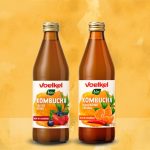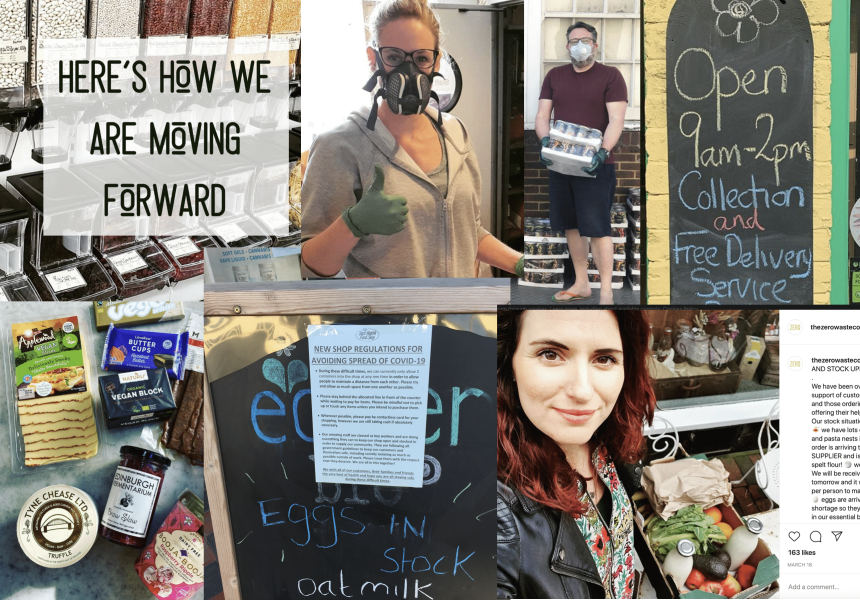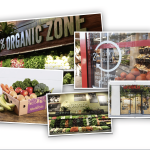The lockdown has dramatically changed the retail landscape and placed Britain’s natural products retailers on the front line of a national effort to keep the country nourished, healthy and protected during the coronavirus crisis.
At 8.20pm on Monday 23 March Boris Johnson announced that Britain was going into lockdown. All non-essential retail businesses would have to close from midnight. In the small hours of Tuesday morning came confirmation came that health food stores would be able to stay open. It’s been business not as usual ever since.
At the time of writing, Britain’s lockdown has just been extended for a further three weeks and it seems likely that restrictions could continue well into the summer. Parts of the population may be asked to self-isolate for as long as year. The ramifications for health – physical, emotional and societal – are enormous. Amid all this, natural products retailers find themselves on the front line of a nationwide effort to keep the country nourished, healthy and protected.
Welcome to the new normal
The ‘new normal’ arrived abruptly for health stores. Strict new social distancing and enhanced hygiene requirements were expected to be implemented immediately. Retailers have had to make speedy adaptions, and in some cases almost reinvent their whole business model.

The sense of being in uncharted territory felt very real for Josine Atsma, owner of Stirling Health Food Store (pictured) . “We really didn’t have anything to compare this to. We’re still learning as we go. We taped out the floor to provide social distancing guides, and initially set a maximum of five people to be allowed in the shop at any one time, including staff. Since then we’ve created a physical barrier at the till because customers were still coming right up to the counter – and we’ve reduced the number of people allowed in the store to three.” The store is also operating “mildly reduced” opening hours to give staff “a breather”.
So, how has business been holding up since the lockdown began, and what is Stirling Health Food Store doing differently? “Business overall is up. We had a ridiculously busy period in the week before the lockdown, better than Christmas – we were something like 300% up on usual store sales. It was mental, a third of the shop was empty by the end of the week. Since then we’ve been about 10% up, although actual footfall is down.”
The biggest change, says Atsma, is how people are shopping. “We used do get one click and collect order every four or five days. Now we’re getting between five and seven each day. It’s how most people want to shop with us at the moment.
Taking stock
“But online shopping has been so successful that we have had to disable the postal service we normally offer. We literally don’t have enough stock, or cardboard, or people capacity to be posting out about 20 orders a day.”
Stock levels is something that concerns Atsma. “It’s bad. It actually worries me a lot. The supply of flour for example is pretty much non-existent. There’s been no pre-packed flour available now for nearly two weeks. We’ve been buying 25kg bags and putting those into 1kg bags for customers. We’re a small shop with very little storage space, so that’s very difficult.
Vitamin D and vitamin C have also been in short supply. “Pretty much anything that helps keep your immune system strong has been in high demand. In the panic buying that went on before the lockdown pulses, nuts, seeds, dried fruit and pasta just disappeared off the shelves.”
Atsma says she is now focusing on “the essentials, the food products that people really need to have. I think we have a bit of responsibility as retailers to make the essentials available. That’s the way I feel, and that’s the way I’m running the business.”
“I think we have a bit of responsibility as retailers to make the essentials available. That’s the way I feel, and that’s the way I’m running the business”
The Zero Waste Company opened in Tunbridge Wells in November 2019, and is one of a growing number of sustainability driven food and household stores to have sprung up up in Britain. Although the store sells some minimally packed goods, Zero Waste’s whole ethos (the clue really is in the name) is to be packaging-free wherever possible. A lot of time was spent in the first weeks explaining the benefits of this approach, and coaxing customers into bringing in the their own reusable refill containers, for everything from pulses, grains and oil to beauty and cleaning products.
In other words, it’s a very hands on way of retailing. So the arrival of the Covid pandemic called for some speedy adaptions at the store. After “thinking long and hard about staying open” after the lockdown, co-owners Charlotte Bowyer and Holly Watson decided that “as a food supplier with zero waste ethics at its core it was important to carry on – but with some significant changes to how the store operates”.
Using its very proactive social media presence The Zero Waste Company guided its costumers through some of the adaptions it was making. Announcing ‘Here’s how we are moving forward’ the store said it was introducing maximum customer-in-store numbers, strict social distancing measures (with the offer of a coffee for those queuing outside), brown bags only for produce, home delivery and box scheme service and click and collect. Enhanced hygiene measures include regular sanitising and cleaning, face masks (washable and zero waste, naturally) for store staff and card-only transactions.
An upside for the business has been what Watson says has been an “exponential increase in home deliveries”. And the store is taking pride in continuing to source a wide range of organic fresh fruit and vegetables while the supermarkets have sometimes struggled.
Going the extra mile
Avril McCracken, administrator at the National Association of Health Stores (NAHS), says the current crisis has shown the health food trade at its very best. “So many retailers have really been going the extra mile for their customers and communities.”
 McCracken agrees that click and collect is playing a valuable role in helping stores maintain sales. Another approach, ‘check and collect’ (or ‘call and collect’) – which has the benefit of not requiring an existing e-commerce capability – has also “come into its own”. Using social media to raise awareness of these extra services is also important, says McCracken – she cites Edinburgh-based Hanover Healthfoods, which has been posting shots of its delivery order boxes (and its new gift wrapping service!) on its Instagram page.
McCracken agrees that click and collect is playing a valuable role in helping stores maintain sales. Another approach, ‘check and collect’ (or ‘call and collect’) – which has the benefit of not requiring an existing e-commerce capability – has also “come into its own”. Using social media to raise awareness of these extra services is also important, says McCracken – she cites Edinburgh-based Hanover Healthfoods, which has been posting shots of its delivery order boxes (and its new gift wrapping service!) on its Instagram page.
The NAHS estimates that health stores have been about 10% down on sales since the lockdown, but that pre-lockdown panic buying will mean that year-to-date sales should be holding up overall. “One member told us they’d had 800 people in their store on a single day at the peak of the frenzy,” says McCracken.
She adds that certain product categories are still in high demand. “Vitamin C, D, beta-glucan are all selling well. Grocery staples, canned products and dried goods are also selling strongly. Aloe vera gel is flying off shelves as people try to find solutions to dry skin, natural sanitisers too – and hair dye. We’re seeing a progression of needs! Supply is becoming a challenge, though. Flour is like gold dust, and yeast even more elusive.”
Mark McCarty, co-founder and director of natural health distributor World Foods Brand Management, says business has been booming in the last few weeks. “We saw a doubling of sales in March, and probably could have tripled them.” A key driver of current high sales levels is the large number of people coming into the market, people who wouldn’t normally be thinking about buying specialist health products.
Make these new customers yours
Quite a lot of those new customers will heading to major high street chains like Boots, or Amazon. McCarty would like two see them becoming health store regulars. “I think health food stores have an opportunity to create a completely new interest in their businesses. They can become storage hubs for products that you simply can’t get elsewhere.”
“I think health food stores have an opportunity to create a completely new interest in their businesses. They can become storage hubs for products that you simply can’t get elsewhere”
McCarty would also like to see brand owners and suppliers getting behind the independents at this crucial time with joint advertising. “Despite the opportunity, the post-lockdown reality is that there are less stores out there which are open.” World Foods conducted its own survey of health store retailers nationally to ascertain overall retail capacity. We look at this in terms of opening capacity and we think that probably there is 40% less opening capacity than there was before the lockdown.
“A lot stores are operating on a 10am-3pm basis, using the rest of the day to pack mail orders. The shift in the trade towards click and collect and home delivery has been extraordinary, says McCarty. “Just to take our business with Holland & Barrett, prior to this crisis about 90% of our own sales were going through in store, and 10% online. The week after lockdown we were looking at figures of 30% in store, 70% online.”
World Foods says its April sales are 30% up on last April. “Bio-Strath sales are up 30-40%. We shifted probably six months’ worth of Hubner Immun Pro infection blocker in a week. We’ve got a really nice oregano oil – another anti-viral herb – that we’re importing, and that’s doing really well. And we’ve got high hopes for Virillin – a new Immunity product from Dr John Briffa – which comes through at the end of May.”
Finding a rhythm
The pressure on wholesalers in the last few weeks has been intense. “I think everyone was struggling right at the beginning of this,” says Nathalie Spencer at Suma. “There was such a surge in demand, it was just incredible. Our priority has always been to get food out to as many people as possible, which why we’ve been very focused on our independent retail customers, because they can do that most efficiently. We supply a lot of community shops, and they are literally a lifeline to some villages.
 “As well as the huge extra demand, we’ve obviously also had implement strict social distancing measures ourselves in the warehouse and office, and new kerbside deliveries. That’s created extra challenges. But we have now found a rhythm in all of this, and we are learning and innovating all the time.”
“As well as the huge extra demand, we’ve obviously also had implement strict social distancing measures ourselves in the warehouse and office, and new kerbside deliveries. That’s created extra challenges. But we have now found a rhythm in all of this, and we are learning and innovating all the time.”
Suma also reports high demand for flour, pulses, beans, lentils and other dried and canned goods. “It’s been very much a case of people going back to basics, people want wholefoods,” says Spencer.
“There is demand for treats, don’t get me wrong. That’s understandable – everyone’s been cooped up for weeks, we need to treat ourselves occasionally! We also had quite a few Easter eggs left on our hands as you can imagine. But we were able to get a lot of these out to local hospitals to put a smile on as many faces as possible. And we’ve been making regular donations to food banks, which have come under huge pressure in the crisis.
“We’re a cooperative, so maybe we’d notice this more. But one thing I’d say we’ve all really noticed is just how cooperative and generous spirited people have been, in the trade and in their communities. We are so thankful to our customers for the help and support they’ve given us.”
Main image: Stirling Health Food Store, Suma, Zero Waste Company, Best Health Food Store (via Facebook)










